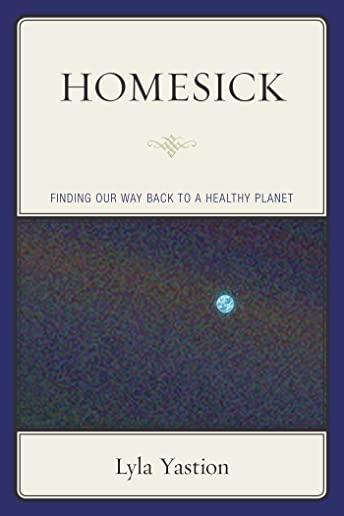
description
6Human-induced climate change is emerging as the most critical issue of the modern era. Ninety-seven percent of climate scientists now confirm that human extraction and burning of fossil fuels, along with rampant deforestation, is causing a rapid build-up of carbon dioxide and other greenhouse gases in air and water. These emissions heat up the planet and may be pushing Earth's capacity beyond the threshold at which equilibrium can be restored. Global warming is sustained by a global capitalist economy dependent upon the fossil fuel industry and agribusiness, both of which are unsustainable. The toxic effects of air pollution, ocean acidification, and soil degradation are harming the health of all species. Through an interdisciplinary approach that brings in the perspectives of the physical sciences, psychology, anthropology, economics, cultural history and spirituality Homesick investigates the evolutionary path by which human beings have arrived at this precarious juncture. It proposes that this perilous detour in human cultural evolution arises from a fallacious belief that the human species, unlike other species, is not bound by ecological laws but has a special right to control and master the natural world. Human beings suffer from the illusion that they are separate from the Earth, their planetary home, which is perceived as an object-- a commodity-- to exploit through technology. They have forgotten what indigenous peoples still remember: humanity is part of, not apart from, the natural world. Homesick argues that cultural transformation towards a sustainable future is possible when human beings reawaken to Nature as partner and provider. As memory of their embeddedness in the natural world is aroused, they will experience love and respect for the interdependent web of life that sustains them. This reawakening incrementally induces a radical change in thinking within society and sets in motion a paradigm shift. Cultural institutions are then reshaped to match this new benign worldview.
member goods
No member items were found under this heading.
Return Policy
All sales are final
Shipping
No special shipping considerations available.
Shipping fees determined at checkout.







